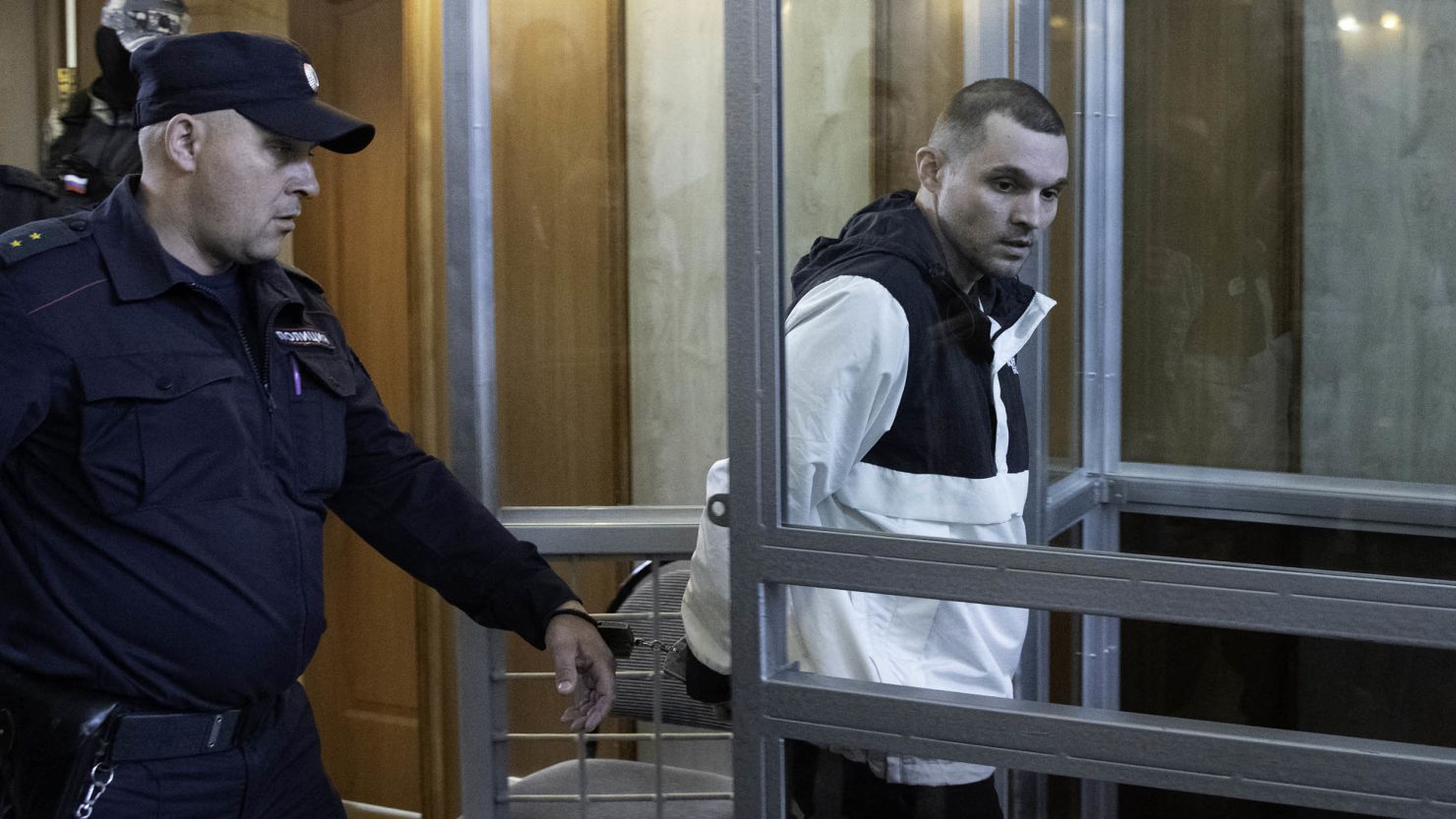A Russian court has denied the appeal of Gordon Black, a 34-year-old U.S. soldier who was sentenced to three years and nine months in prison on charges of theft and making death threats.
U.S. Soldier’s Appeal Denied in Russian Court
Black was arrested in May in Vladivostok, a city in Russia’s Far East, where he had traveled to visit Alexandra Vashuk, a Russian woman he met while stationed in South Korea. His legal battle, steeped in allegations of betrayal and international tensions, has drawn attention to the broader issue of American citizens imprisoned in Russia. Black’s troubles began when Vashuk reported him to the police following a heated argument, accusing him of physically assaulting her and stealing 10,000 rubles (approximately 100 euros). Black admitted to the theft but denied the more serious charge of threatening Vashuk’s life, claiming that the argument escalated after she had been drinking. Despite his partial admission of guilt, Black has maintained that the charges against him were exaggerated, a sentiment echoed by those who see his case as another example of the complex and often strained relations between Russia and the United States.
A Relationship Gone Wrong
The relationship between Black and Vashuk began in October 2022 on the dating app Tinder while Black was serving in South Korea. Their relationship seemed promising, leading Vashuk to invite Black to visit her in Vladivostok. However, the visit took a dark turn when the couple’s relationship soured, resulting in Vashuk’s accusations and Black’s subsequent arrest. The Russian court in Vladivostok found Black guilty in June and sentenced him to nearly four years in prison. Black’s appeal was an attempt to reduce or overturn the sentence, but the Primorye regional court rejected his appeal on Monday, stating that the original verdict would stand. The court’s decision has left Black with limited legal options and facing the reality of serving out his sentence in a Russian prison, far from home and his military career.
International Implications and U.S. Response
Black’s case is not an isolated incident. He is one of several American citizens currently imprisoned in Russia, a situation that has led to accusations from Washington that Moscow is targeting U.S. nationals for political leverage. The U.S. government has expressed concern that these arrests are part of a broader strategy by Russia to use American prisoners as bargaining chips in negotiations with the West.
The most notable example of this strategy was the August 1 prisoner swap, in which Russia released U.S. journalist Evan Gershkovich, former U.S. Marine Paul Whelan, and 14 others in exchange for Russian nationals imprisoned abroad. The swap, the largest since the Cold War, underscored the ongoing tensions between the two nations and the precarious position of American citizens who find themselves entangled in the Russian legal system.

Back in the U.S., Black’s family and supporters continue to plead for his release, urging the American public and government to intervene. His case highlights the risks faced by Americans traveling or living abroad, particularly in countries where diplomatic relations with the U.S. are fraught. As Black faces the grim prospect of years in a Russian prison, his story serves as a cautionary tale of how quickly international travel and romance can turn into a nightmare.
